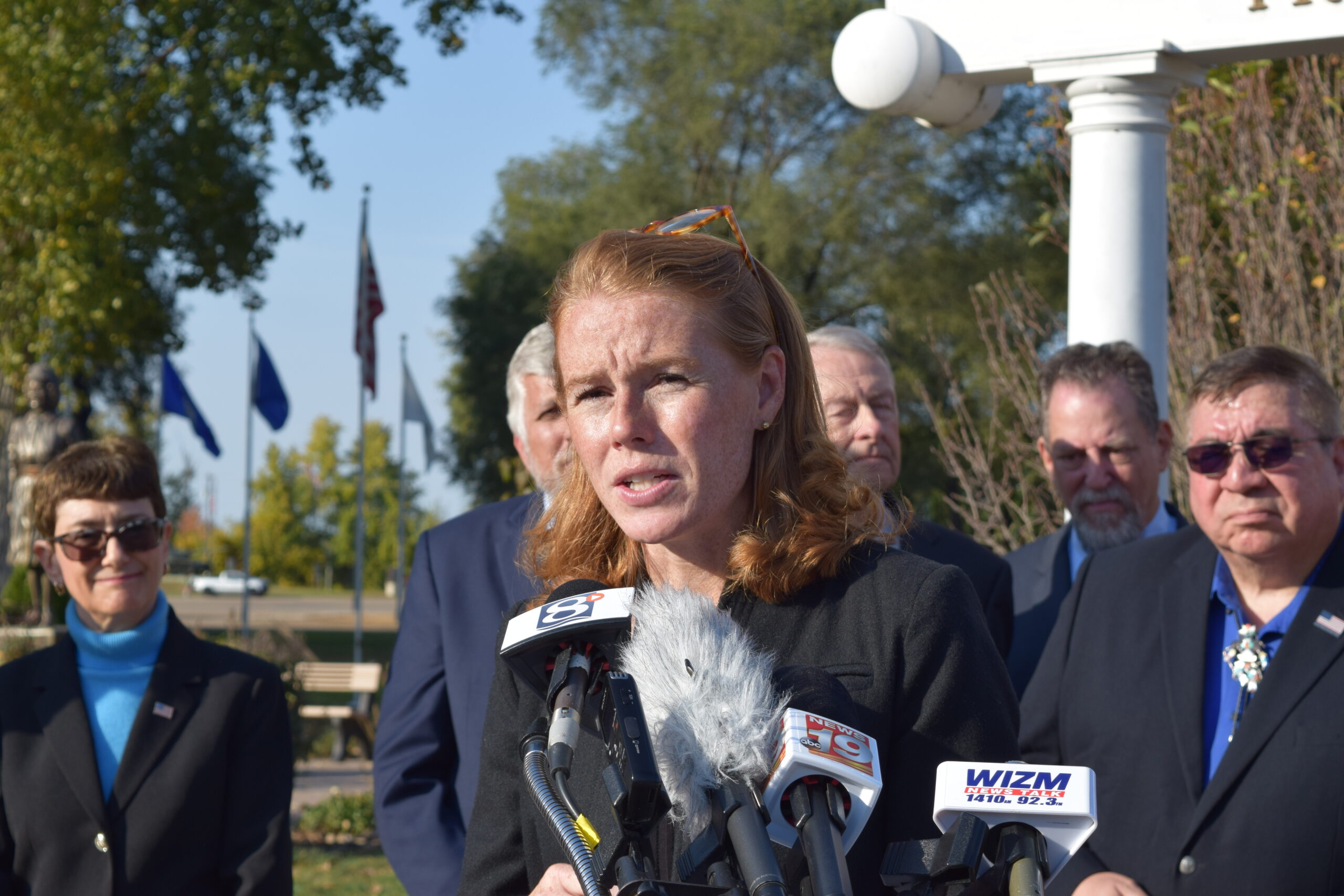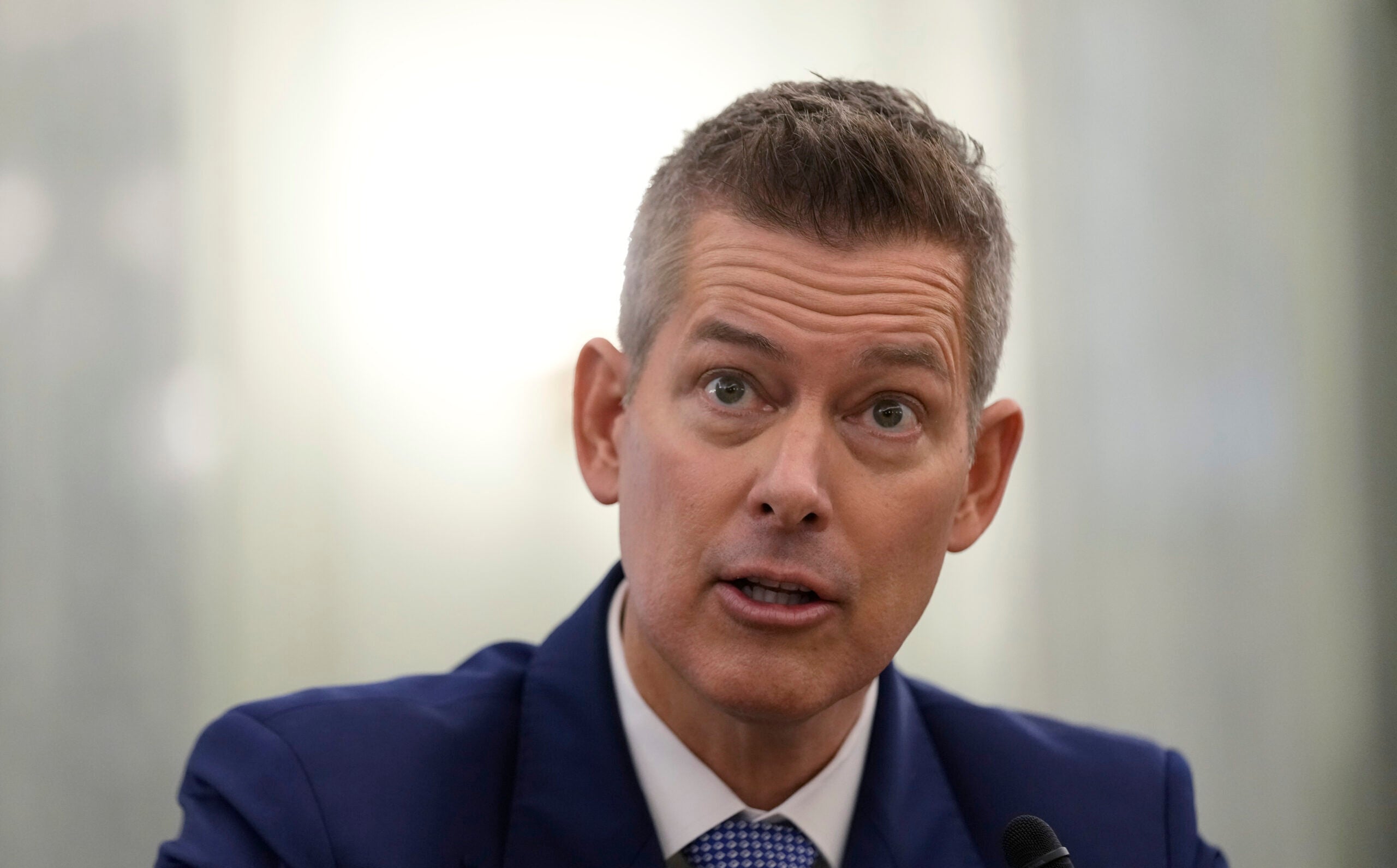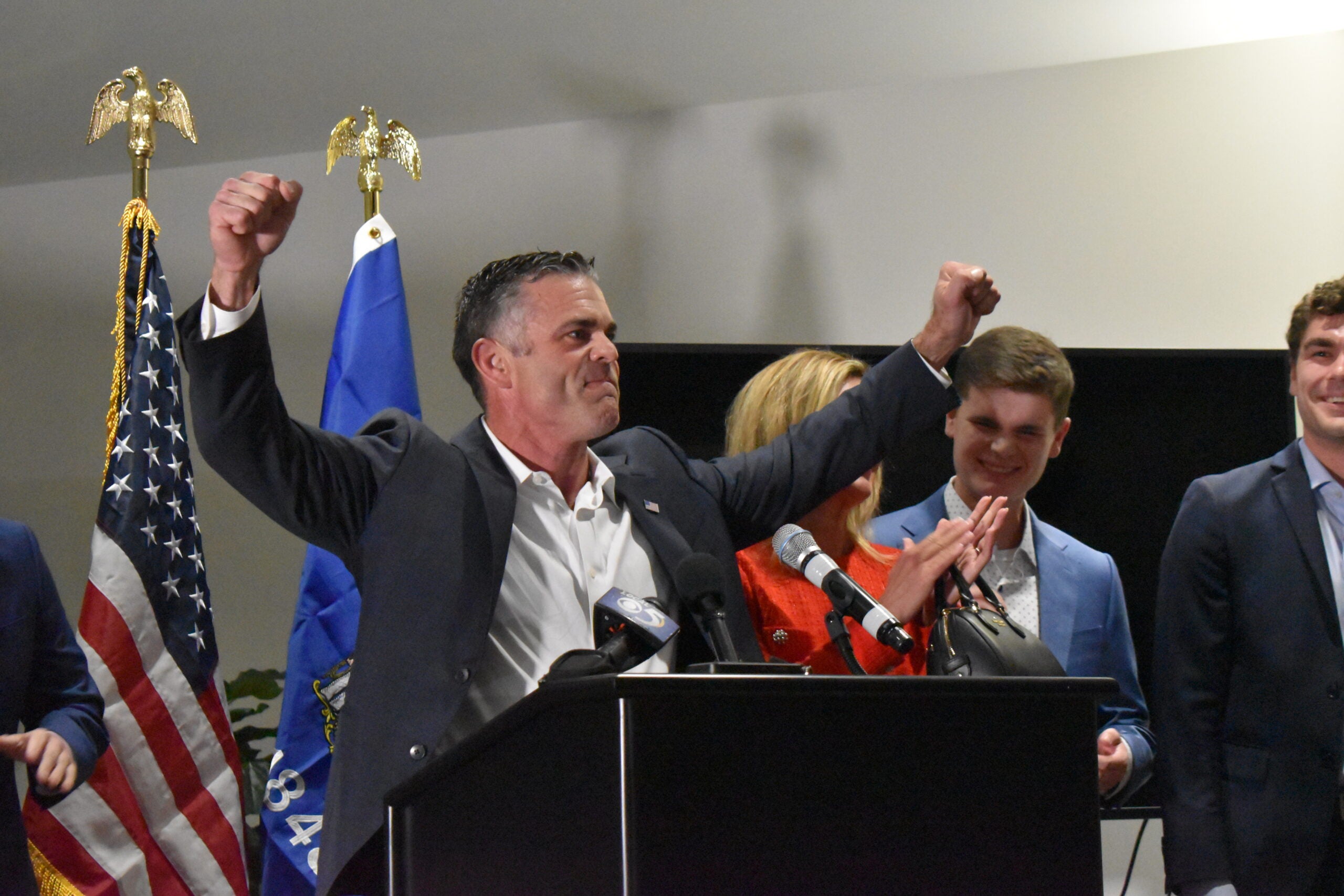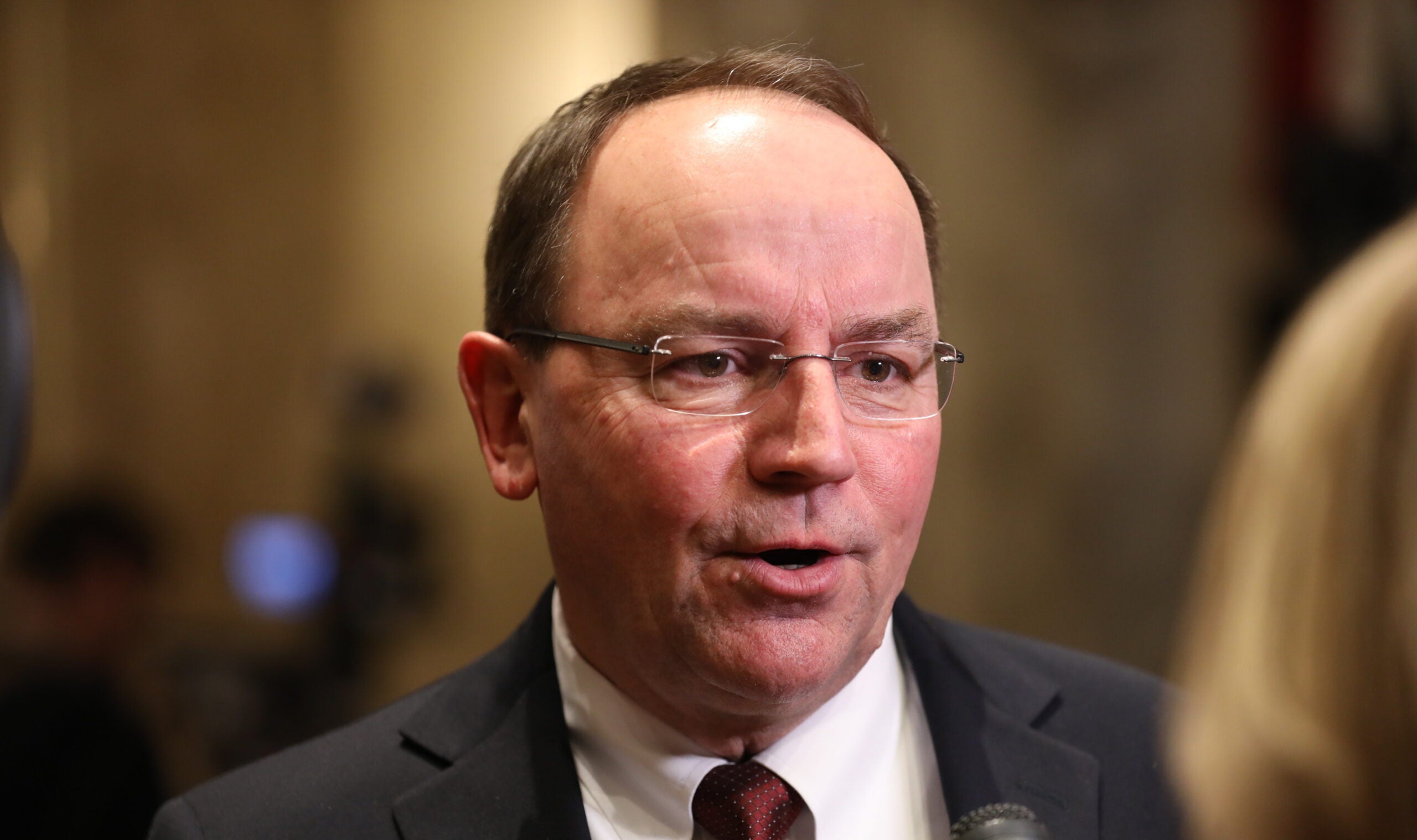The special election to replace resigning U.S. Rep. Sean Duffy won’t wait until spring.
Gov. Tony Evers on Monday announced the election will be Monday, Jan. 27. If a primary is required, it will be Monday, Dec. 30.
Duffy, a Republican from Wausau, announced in August he would resign from Congress, citing Fox News commentator Rachel Campos Duffy, His resignation takes effect 5 p.m. Monday.
Stay informed on the latest news
Sign up for WPR’s email newsletter.
Democratic district chairwoman Kim Butler pointed to the surprise win of Democratic state Sen. Patty Schachtner, of Somerset, in a January 2018 special election in the district as proof that Democrats can compete. The short timeline on the special election presents challenges, she said, but it’s also an opportunity.
“Democrats are very enthusiastic and excited right now,” Butler said. “This is a big opportunity for us, and we want to make the most of it. … It’s going to be a lot of work, but the nice thing is that we will get a lot of focus on this election around the state and around the country, which will, I think, benefit Democrats.”
Evers, a Democrat, said in a statement that “the people of Wisconsin’s 7th Congressional District deserve to have a voice in Congress, which is why I am calling for a special election to occur quickly.”
On Twitter, the state Republican Party scoffed at the notion that the decision was about representation for the district.
“Apparently @GovEvers is afraid of having strong GOP turnout in the CD7 special election at the same time as the (Democratic presidential primary) and (state Supreme Court) election. This is a blatant attempt by Evers to benefit his own party,” the official Wisconsin GOP account wrote.
In the days immediately after Duffy announced his resignation, many watchers of politics speculated that the governor might call the election to coincide with spring 2020 elections. Because Wisconsin’s presidential primaries fall on that date, Tuesday, April 7, Democrats are expected to have high turnout as voters seek to weigh in on the party’s presidential nominee. There is also a state Supreme Court race on the statewide April ballot, and in recent weeks some speculated that adding the congressional special election to the April ballot could end up driving Republican turnout.
Holding the election in April would also mean keeping the 7th Congressional District without a representative for more than six months.
State law dictates the governor can call a special election for between 92 and 122 days from the time of the order, which can occur when a congressional seat becomes vacant. This means the earliest possible date for the primary would have been Tuesday, Dec. 24, and the general election Tuesday, Jan. 21. The governor’s order sidesteps the complication of holding the election on the state holiday of Christmas Eve.
Duffy represented the 7th Congressional District for nearly nine years. In 2016, the rural district gave President Donald Trump his largest winning margins in the state. The 7th Congressional District includes more than two dozen counties and includes much of central, northwestern and Northwoods Wisconsin.
Republican state Sen. Tom Tiffany, of Minocqua, has declared his candidacy for the office. No Democratic candidate has yet come forward. Butler said she was expecting Democratic announcements this week.
Jim Miller, Republican chairman of the district, called the special election’s timing a “desperation move.” He said the short timeline on the election would require a sprint for candidates to raise money and get their message out. But he said Republicans have a surefire way to rally enthusiasm ahead of the special election if Trump chooses to visit for a campaign rally.
“Having the ability to have the president to come in and rally Republican voters at the end is obviously incredibly strong for us as Republicans,” Miller said. “We’ve got a lot going for us in that regard.”
Wisconsin Public Radio, © Copyright 2025, Board of Regents of the University of Wisconsin System and Wisconsin Educational Communications Board.




